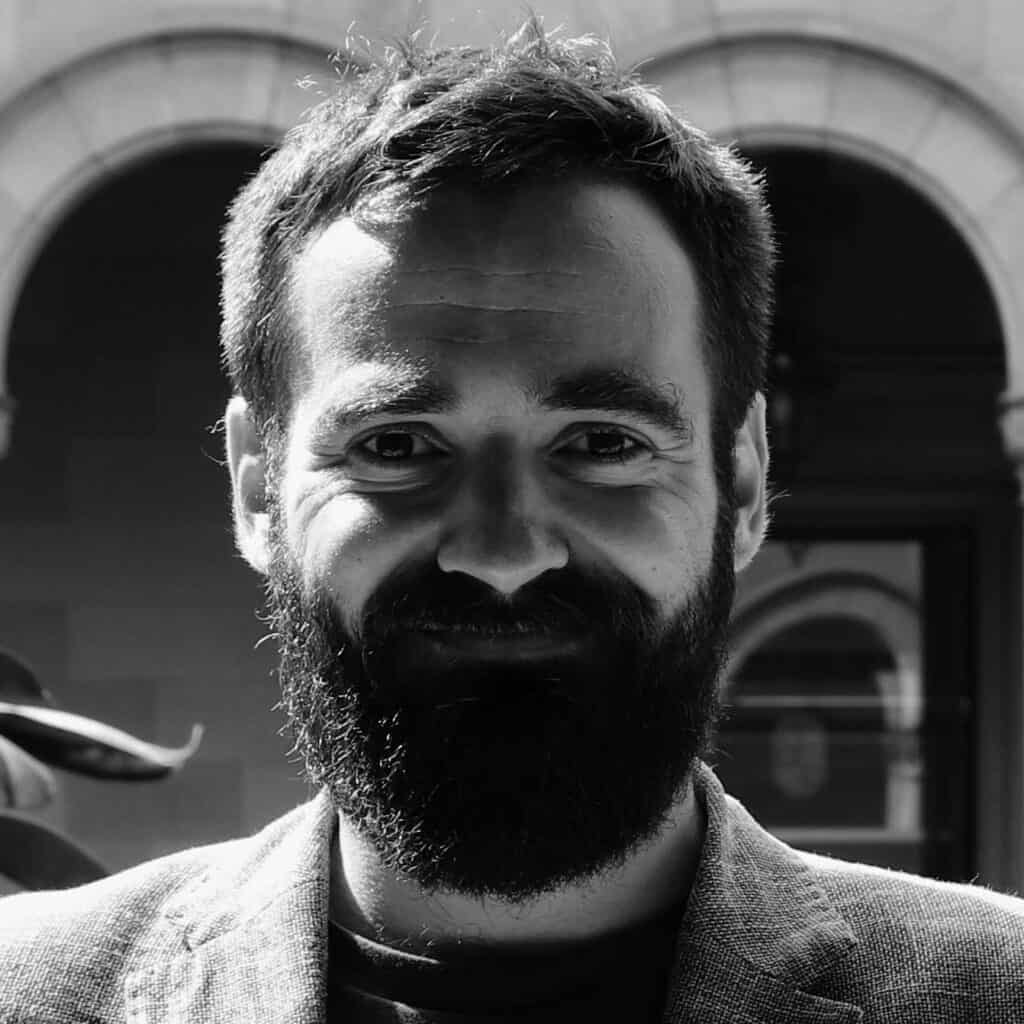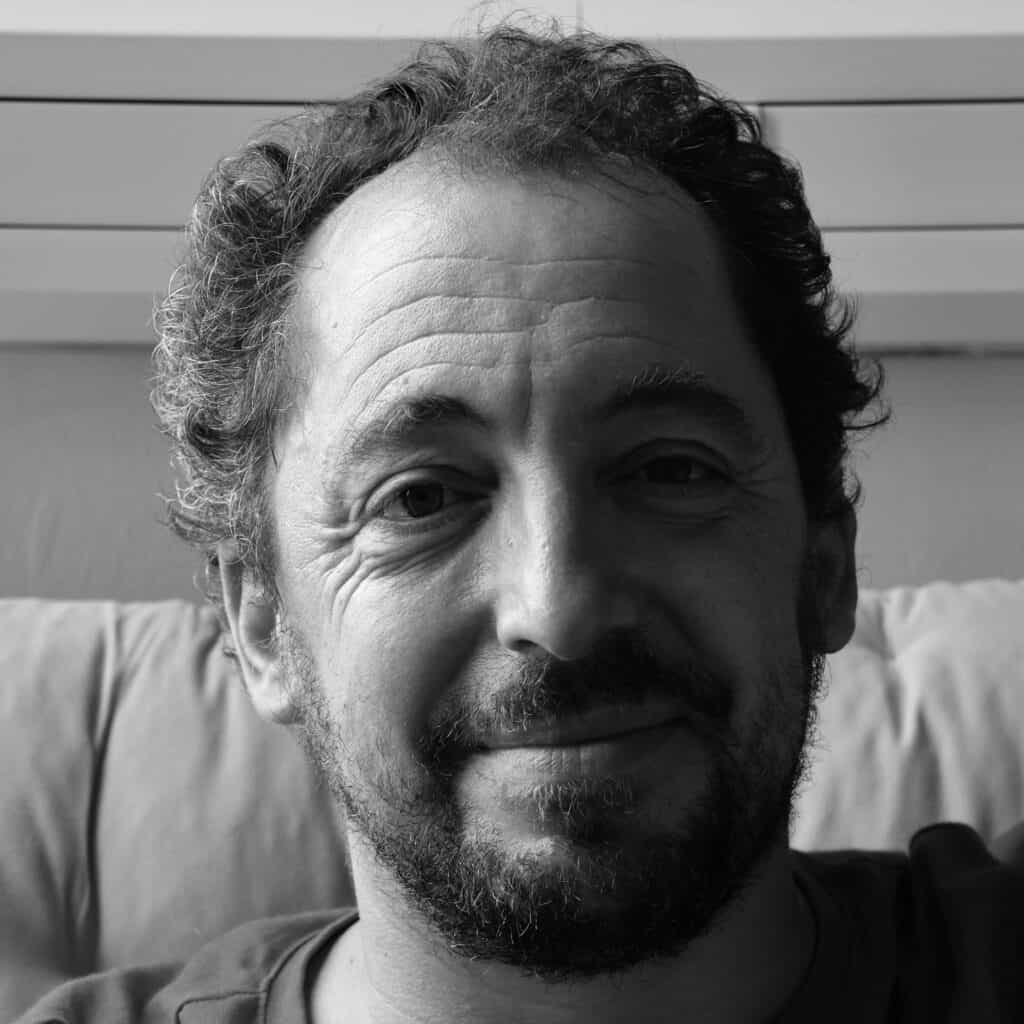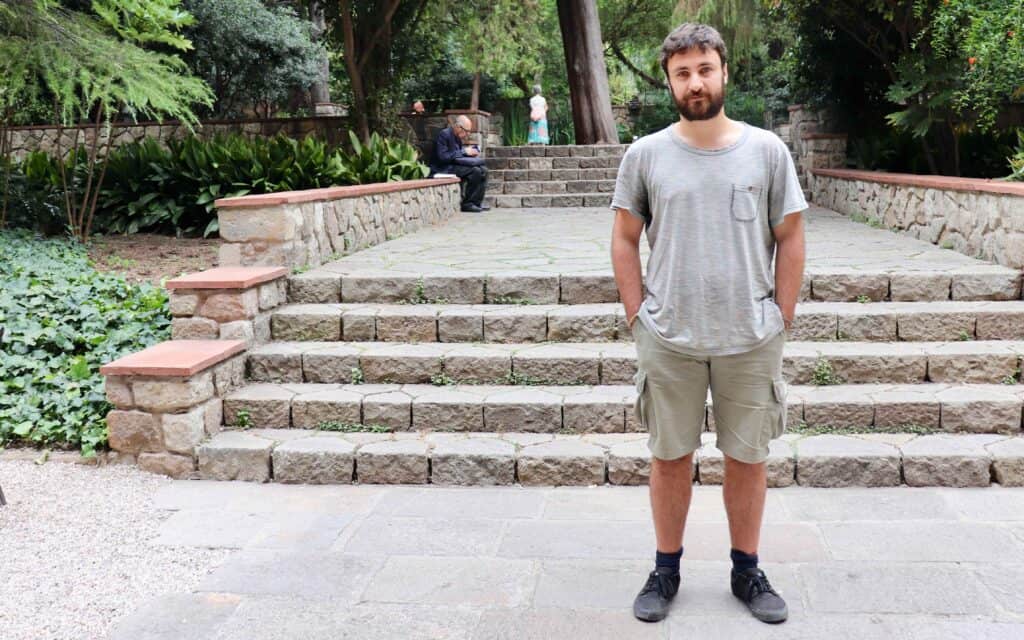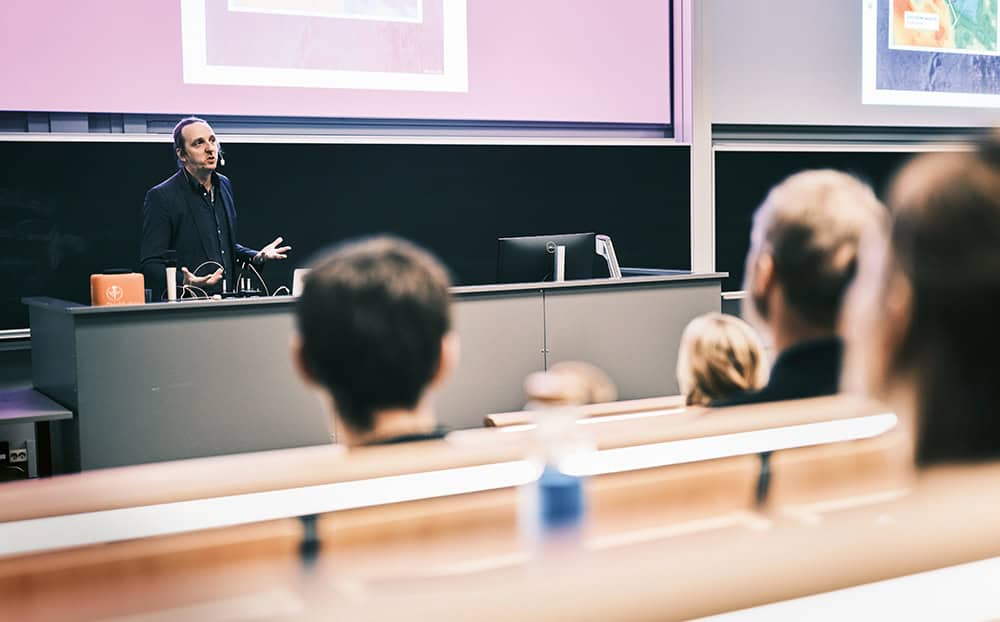Doctoral candidate Lorenzo Velotti is sitting on a bench in the courtyard of the Universitat de Barcelona’s main building. The same courtyard that he, another doctoral candidate and almost 30 students who are members of the organization End Fossil Barcelona occupied in November 2022. They were demanding that the university introduce a compulsory course on the climate crisis and its social aspects by 2024.
“The crisis is ecological, but also societal, both in terms of the causes, such as capitalism, and the consequences, such as the inequality in how people are affected,” says Velotti, who researches social movements.
Occupiers achieved their goal
After a week of negotiations, the occupiers achieved their goal. “Thousands of students will learn about the socio-ecological crisis every year. It is an enormous victory.” Velotti is disappointed, however, that the university did not agree to the protesters’ demand to stop accepting funding from fossil fuel companies and banks that invest in fossil fuels. “We realised that the demands need instead to be about more government funding for universities, to free them from the influence of the fossil fuel companies,” he says.

Ander Errasti
Director of Coordination and Communication, Universitat de Barcelona
We meet Ander Errasti, Director of Coordination and Communication at the Universitat de Barcelona, in his office. He says that the university already had plans to introduce some form of course content about the climate crisis and its social consequences before the occupation.
“We have already started training teachers and will ensure that all staff have the knowledge they need within five years.”
Ander Errasti
The first step now is to train the roughly 6,000 teachers in how they can integrate an eco-social perspective into their teaching. “We have already started training teachers and will ensure that all staff have the knowledge they need within five years,” he says.
New course for 70,000 students
But developing and implementing a new course for the university’s 70,000 students is a slow and bureaucratic process, and he hopes to have it up and running by the 2025-2026 academic year.
However, a sustainability perspective has already been included in the introductory course for new students. “We are also working on implementing smaller elements of the course earlier so that students studying years four and five can have access to certain parts this year already. We are also trying to develop pilot versions of the course in closely-related subjects, such as biology, by 2024.”
Errasti tells us that ending ongoing collaborations with companies and banks with links to fossil fuels is not possible yet. “We would like to be independent of all companies, but cannot give up that type of financing. However, we have appointed a committee to review new proposals for external collaborations based on sustainability criteria.”

Jofre Carnicer Cols
Professor of ecology
At the school of biology we find Jofre Carnicer Cols. He is a professor of ecology, co-author of the UN Climate Panel’s sixth knowledge assessment and sits on the committee that is developing the mandatory course.
”A challenge that requires cultural change”
“Climate change is a major challenge that also requires cultural change. Educational institutions are key actors in that process,” he says.
The course will have a general component for all students and a component adapted to each faculty. Students need to understand the basic mechanisms behind climate change. They also need to acquire knowledge about the limitations of the planet and of economic growth and the link to social inequality. “A small percentage of consumers with high incomes account for a large proportion of emissions, while it is primarily poor communities that are affected.”
“It may also be necessary to change entire economic systems, such as the energy system. With these structural changes, people need to work in new ways and receive support from society.”
Jofre Carnicer Cols
The course will also address the cultural shift that is required. People have to change their lifestyles, the way they travel and consume. “It may also be necessary to change entire economic systems, such as the energy system. With these structural changes, people need to work in new ways and receive support from society.” says Jofre Carnicer Cols.
















